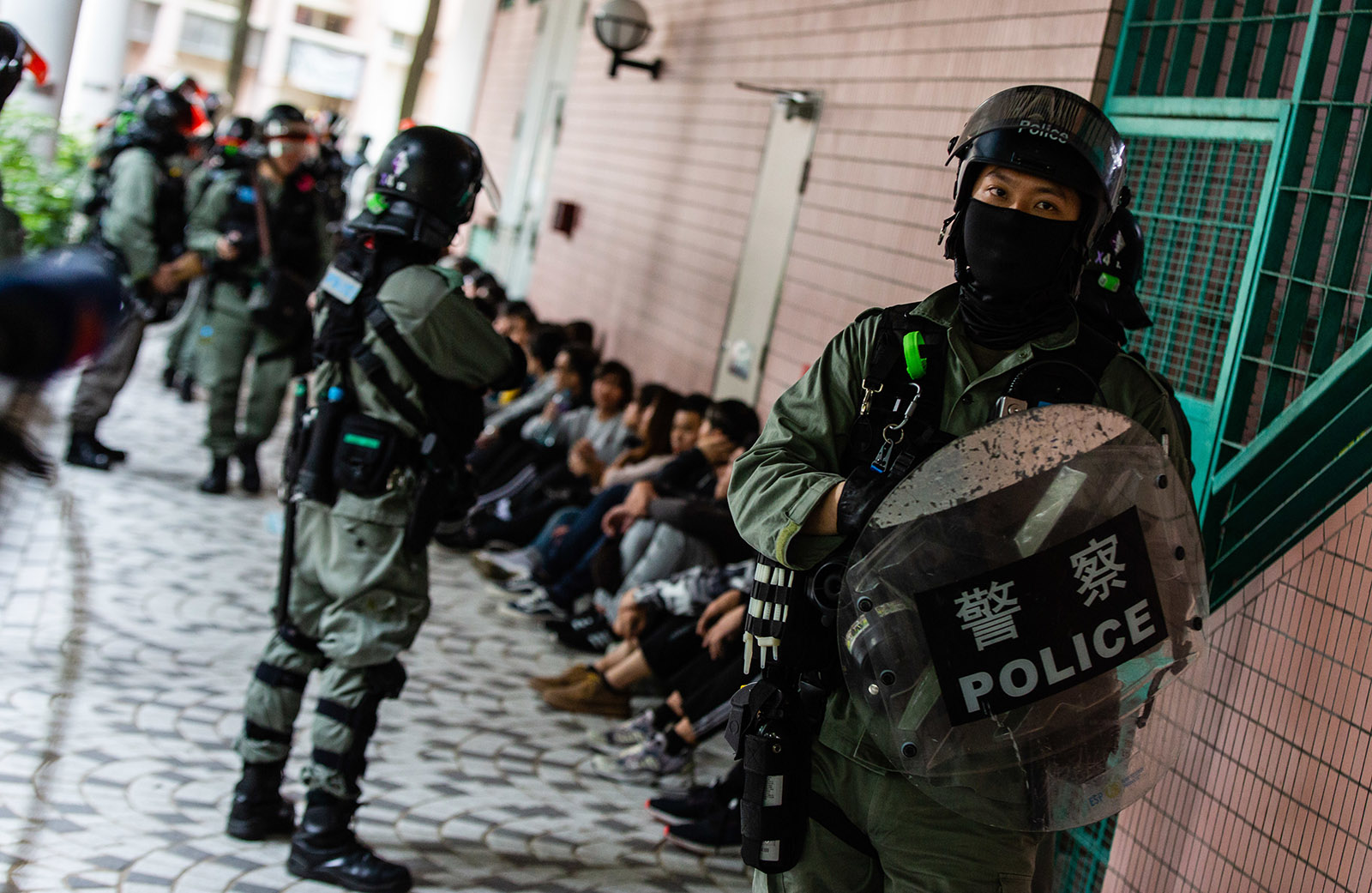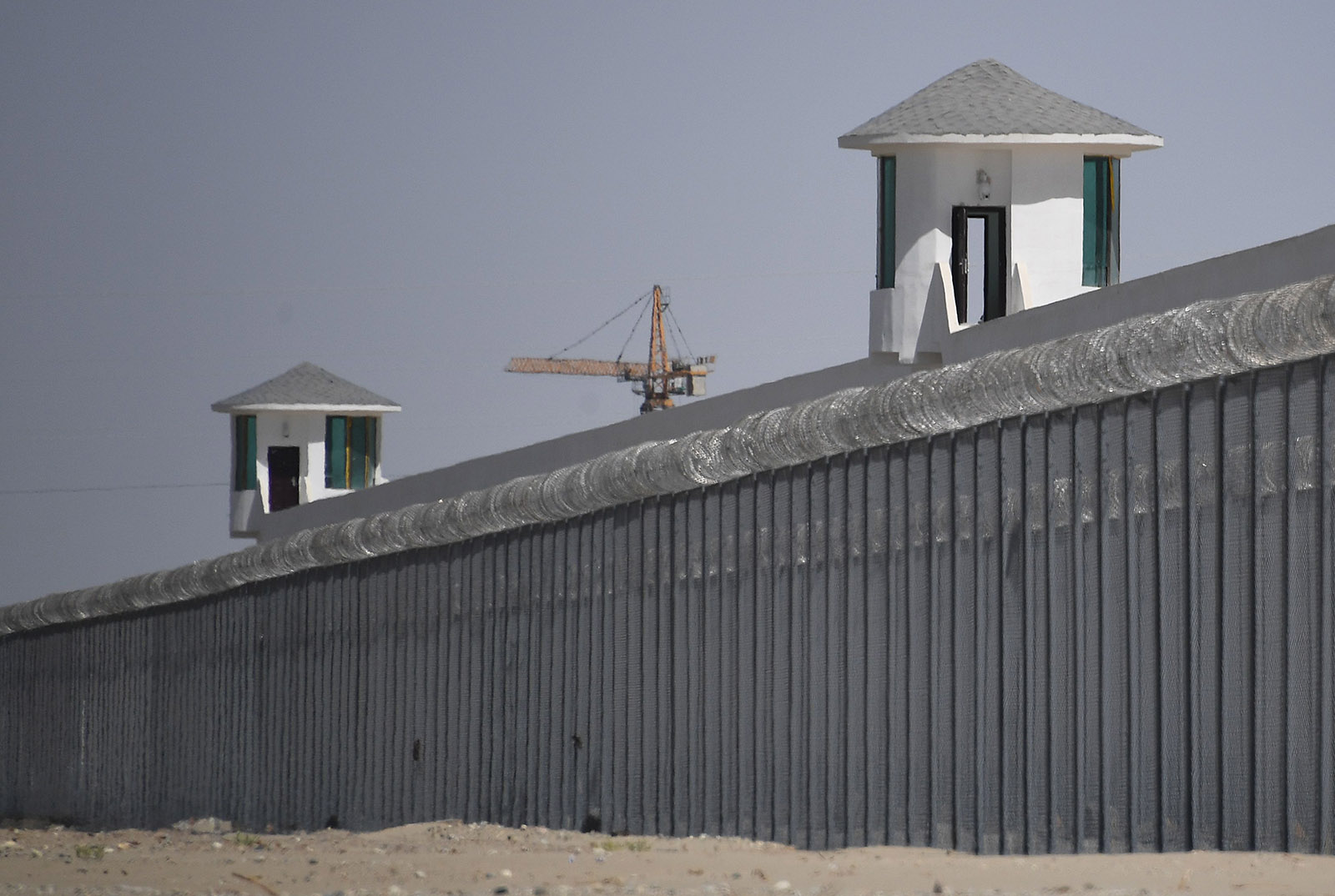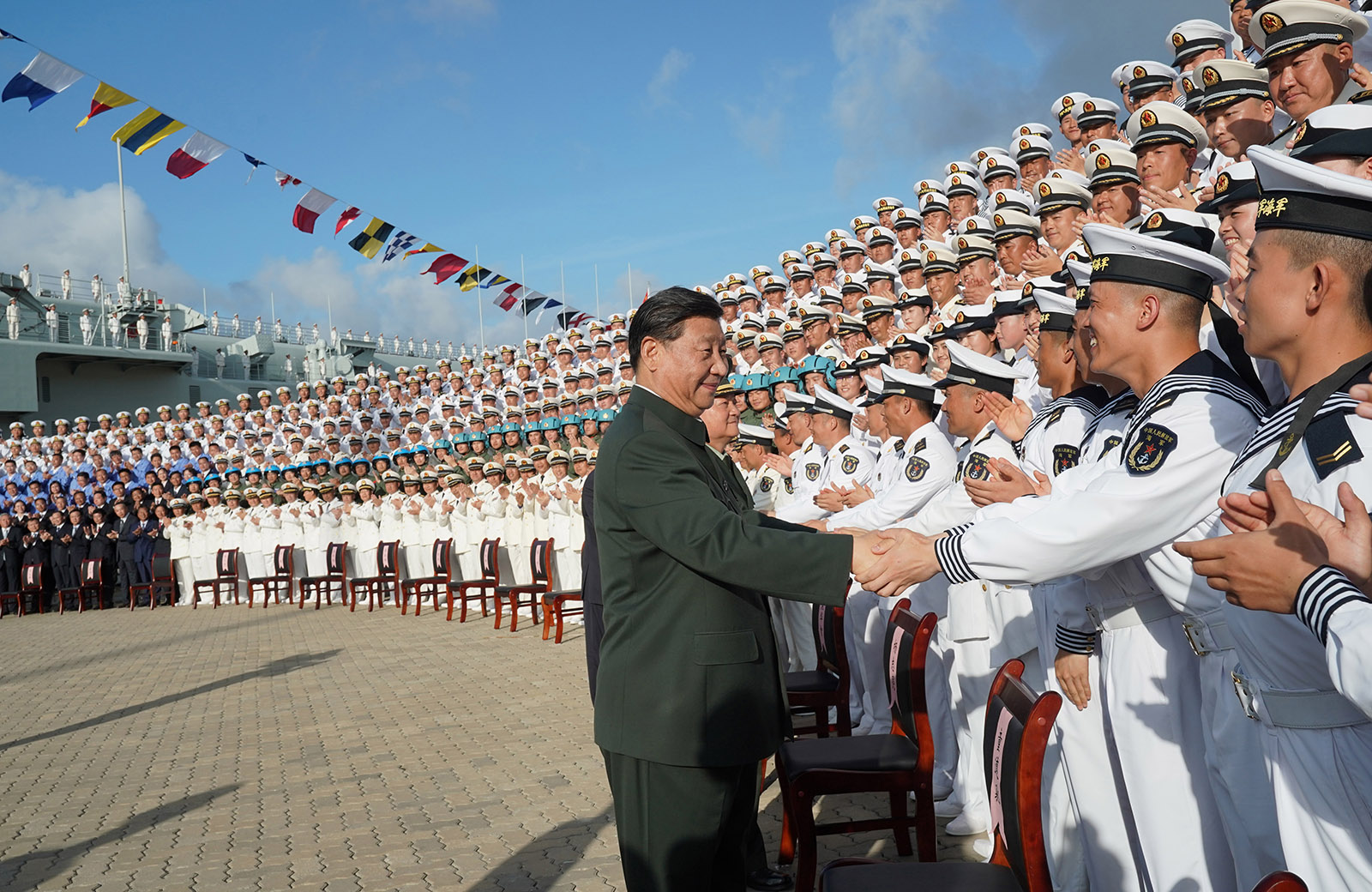Because the Chinese government depends on repression to stay in power, it sees the defense of human rights as threatening. But to prevent global criticism of its tightening domestic crackdown, Beijing is increasingly undermining the international system for protecting human rights, putting everyone in greater jeopardy.
To maintain its grasp on power at home, the Chinese Communist Party has constructed an Orwellian high-tech surveillance state and a sophisticated Internet censorship system to monitor and suppress public criticism. Now, China has begun to use its growing economic and diplomatic clout to extend that censorship abroad, silencing critics and carrying out the most intense attack on the global system for enforcing human rights seen since its emergence in the mid-twentieth century. If not challenged, Beijing’s actions portend a dystopian future in which no one is beyond the reach of Chinese censors, and an international human rights system so weakened that it no longer serves as a check on government repression.
The Chinese government is not the only threat to human rights today, but it stands out for its reach and influence. And just as long-time authoritarian governments welcome China’s assault on human rights, the rise of populist autocrats has caused several governments that could once have been rallied, at least on occasion, to defend rights now to act at best haphazardly. The consequence: far from being spurned as a global pariah, the Chinese government is courted the world over, its unelected president receiving red-carpet treatment wherever he goes, and the country hosting prestigious events, such as the 2022 Winter Olympics.
For the cause of human rights, this creates a dangerously destructive combination of a powerful centralized state, a coterie of like-minded rulers, a void of leadership among countries that might have stood for human rights, and a disappointing collection of democracies willing to sell the rope that is strangling the system of rights that they purport to uphold.
*
Beijing’s motives stem from the fragility of rule by repression rather than popular consent. Despite decades of impressive economic growth in China, driven by hundreds of millions of people finally allowed to lift themselves out of poverty, the Chinese Communist Party is running scared of its own people. In the absence of elections, the party knows its legitimacy depends largely on a growing economy. Chinese leaders thus fear that slowing growth will lead to greater demands from the public for more say in how it is governed.
Under President Xi Jinping, the modest opening that had existed in recent years for people to express themselves on matters of public concern has decisively closed. Civic groups have been shut down. Independent journalism is no more. Online conversation has been curtailed, replaced with orchestrated sycophancy. Officials still boast of the country’s economic progress but increasingly censor information about widening income inequality, even as they manage discriminatory access to public benefits and exploit selective corruption prosecutions. Meanwhile, in rural areas 30 percent of Chinese children are left behind as their parents are obliged to seek work in other parts of the country.
Ethnic and religious minorities, in particular, face severe persecution. More than any other government, Beijing has made technology central to its repression. As my colleague Maya Wang and I recently reported in detail for the NYR Daily in “Data Leviathan: China’s Burgeoning Surveillance State,” the Communist Party has already built a nightmarish system in Xinjiang, the northwestern region that is home both to some 13 million Muslims—Uyghurs, Kazakhs, and other Turkic minorities—and to the most intrusive public monitoring system the world has ever known.
Having pioneered this use of new technologies of social control in Xinjiang, the Chinese government is now building similar systems of surveillance and behavioral engineering throughout the country. Most notable is the “social credit system,” which the government vows will punish bad behavior, such as jaywalking and failure to pay court fees, and reward good conduct. People’s “trustworthiness”—as assessed by the government—determines their access to desirable social goods such as the right to live in an attractive city, send one’s children to a top school, or travel by plane or high-speed train. For the time being, political criteria are not included in this system, but it would take little to add them.
Beijing also seeks to extend its censorship of critics abroad. Even though the Great Firewall prevents most people in China from learning of foreign criticism, senior figures in China still bristle at it. As a result, pressure from Beijing has forced a disturbing parade of companies to silence perceived criticism of China by their employees, such as supporting Hong Kong demonstrators or expressing sympathy for the people of Tibet. It is bad enough for foreign businesses to abide by government censorship when operating inside China; it is much worse that they do the Chinese authorities’ dirty work by imposing similar restrictions on their staff and customers around the world.
Advertisement
Efforts to stifle free speech also crop up at universities abroad. The goal of maintaining the flow of students from China, who often pay full tuition, can easily become an excuse for Western universities to avoid uncomfortable subjects. In Australia, Canada, the UK, and the US, pro-Beijing students have sought to shut down campus discussions about human rights abuses in Hong Kong, Xinjiang, or Tibet. In other cases, students from China who want to join campus debates on ideas that would be taboo at home feel they cannot for fear of being reported to Chinese authorities, with possible consequences for relatives at home. Scholars of China face similar pressure. Universities have done little publicly or collectively in such cases to assert the rights of free speech.
*
The conventional wisdom once held that as China grew economically, it would build a middle class that would demand its rights. That led to the convenient fiction that there was no need to press Beijing about its repression; it was sufficient to trade with it.
Few today believe that self-serving rationale, but most governments have found new ways to justify the status quo. They continue to place a priority on economic opportunities in China, but now without the pretense of any strategy for improving respect for the rights of the people there. At best, they express quiet concern behind closed doors—while posing publicly for photo-ops and contract-signing ceremonies.
In fact, the Chinese Communist Party has shown that economic growth can reinforce dictatorship by giving it the means to spend what it takes to maintain power. Those vast resources negate the ability of people across China to have any say in how they are governed. Those resources also underwrite the Chinese government’s efforts to silence critics abroad.
China’s willing accomplices include a collection of dictators, autocrats, and monarchs who themselves have an abiding interesting in undermining the human rights system that might hold them to account. Structuring their rule on the Chinese model, they hope, can also lead to prosperity without the nettlesome business of free debate or contested elections.
In reality, unaccountable governments tend to nurture their own power, families, and cronies, leaving the mass of the people to grapple with poverty, public-health crisis, and economic debacle. For every Lee Kuan Yew, the late Singaporean leader often cited by proponents of supposedly benign autocratic rule, there have been many more—Robert Mugabe of Zimbabwe, Nicolas Maduro of Venezuela, Abdel Fattah el-Sisi of Egypt, Omar al-Bashir of Sudan, or Teodoro Obiang Nguema Mbasogo of Equatorial Guinea—who led their countries to ruin. Indeed, even for China, one need not go back far in history to encounter the enormous human toll of unaccountable government. The same Chinese Communist Party that today proclaims a Chinese miracle once imposed on its own citizens the devastation of the Cultural Revolution and the Great Leap Forward, with tens of millions of them dying.
To avoid an international backlash for crushing human rights at home, the Chinese government is trying to undermine the global institutions that are designed to protect human rights. Chinese authorities have long pushed back against foreign concern for human rights as an infringement of sovereignty, but now China has embarked on outright intimidation of other governments, insisting that they applaud it in international forums and join its attacks on the international human rights system.
Through tools such as its trillion-dollar infrastructure and investment program, the Belt and Road Initiative (BRI), Beijing is methodically building a network of cheerleaders across some seventy states that depend on its aid or business. For example, Pakistani Prime Minister Imran Khan, whose government is a major BRI recipient, said nothing about his fellow Muslims in Xinjiang when he visited Beijing in October, and his diplomats promoted a fawning letter from the Organization of Islamic Cooperation praising “China’s efforts in providing care to its Muslim citizens.” Cameroon delivered similar sycophancy after Beijing forgave millions of dollars of its debt, lauding Beijing for “fully protect[ing] the exercise of lawful rights of ethnic minority populations” such as the Uyghurs of Xinjiang.
To make matters worse, several countries that once could often have been counted on to defend human rights have been missing in action. The United States has occasionally stood up to China. In October, the Trump administration imposed sanctions on the Xinjiang Public Security Bureau and eight Chinese technology companies for their complicity in human rights violations. But President Trump has been more interested in embracing friendly autocrats such as Russian President Vladimir Putin, Egyptian President Sisi, and Saudi Crown Prince Mohammad bin Salman than defending the human rights standards that they flout. And his administration’s misguided withdrawal in June 2018 from the UN Human Rights Council because of its criticisms of Israel has paved the way for the Chinese government to exert greater influence over this central institution for the defense of rights.
Advertisement
The European Union, too—divided over migration, diverted by the Brexit negotiations, and, in some cases, obstructed by member states in the grip of nationalist governments—has often found it difficult to adopt a strong common voice on human rights, although it has made several strong statements on Xinjiang. This disarray makes it easier for China to claim that concerns over its human rights record are merely a matter of politics rather than of principle.
There have been rare exceptions. Last July, at the UN Human Rights Council, twenty-five governments (many from Europe) joined together—for the first time in such numbers—to state their concern about China’s crackdown in Xinjiang. Yet, fearing the wrath of the Chinese government, not one was willing to read the statement aloud to the council, as is customary, instead submitting the joint statement in writing only. That changed in October at the UN General Assembly when the United Kingdom read aloud a parallel statement from a similar coalition of governments.
However, other governments were all too happy to embrace Beijing. In response to these instances of criticism, the Chinese government organized its own communiqué, applauding its “counter-terrorism and de-radicalization measures in Xinjiang” that have led to a “stronger sense of happiness, fulfillment, and security.” More than fifty governments signed on, including such notorious human rights violators as Russia, Syria, North Korea, Myanmar, Belarus, Venezuela, and Saudi Arabia.
The Chinese government backs up such efforts with its economic clout. No Chinese business can afford to ignore the dictates of the Communist Party, so when word comes down to punish a foreign country or company for its criticism of Beijing—for example, by not purchasing its goods—the Chinese company has no choice but to comply. The result is that if any foreign government or company publicly opposes Beijing’s repression, it will face possible exclusion from the entire Chinese market, which now amounts to 16 percent of the world economy.
Recent targets include the National Basketball Association for a tweet by the Houston Rockets’ general manager in support of Hong Kong’s pro-democracy protesters, the British soccer team Arsenal for a player’s statement of concern for the Muslims of Xinjiang, and Sweden after an independent Swedish group gave an award to a Hong Kong-based publisher (and Swedish citizen) whom the Chinese government had arrested and illegally transferred to the mainland after he printed books critical of Beijing.
Because a central purpose of the United Nations is to promote human rights, Beijing has particularly taken aim at the UN. At the UN Human Rights Council, China routinely opposes virtually every human rights initiative that criticizes a particular country unless it is watered down enough to secure that government’s consent. In recent years, China has opposed resolutions condemning human rights violations in Myanmar, Syria, Iran, the Philippines, Burundi, Venezuela, Nicaragua, Yemen, Eritrea, and Belarus. When China’s human rights record came up for a routine review in 2018 and 2019 at the Human Rights Council, Chinese officials pretended to play along but threatened critical delegations while encouraging allies to heap praise. Its diplomats gave blatantly false information while preventing an independent group focused on Xinjiang from speaking.
At the UN headquarters in New York, a major Chinese governmental priority has been to avoid discussion of its conduct in Xinjiang. Even the UN’s most senior officials have felt the pressure: Secretary-General Antonio Guterres has been conspicuously silent when it comes to demanding an end to China’s mass detention of Turkic Muslims.
Often working in tandem with Russia, China has also adopted an increasingly regressive approach to any action on human rights in the Security Council, where it has veto power. For example, in September, as three million civilians faced indiscriminate bombing by Russian and Syrian jets, China joined Russia to veto a Security Council demand for a truce. Beijing has also been clear that it will not tolerate pressure on Myanmar for its atrocities against Rohingya Muslims. Along with Russia, China opposed—albeit unsuccessfully—even a discussion by the Security Council of Venezuela’s humanitarian crisis. In all of these cases, Beijing would rather leave the victims to their fate than generate a model of defending rights that might boomerang on its own repressive rule.
*
Despite the Chinese government’s power and hostility to human rights, its dominance is not unstoppable. But rising to this challenge demands a radical break from the complacent business-as-usual approach. As a first principle, no one should equate the Chinese government with the people of China. That blames an entire people for the abuses of a government that they had no say in choosing.
Today, as a growing number of governments have abandoned the once-convenient fiction that trade can by itself promote human rights in China, they should also leave behind the notion that quiet diplomacy will do the work. The question to ask of dignitaries visiting Beijing who claim to discuss China’s human rights record is whether the people of China—the main engine of change—can hear them.
Governments committed to human rights also need to be more aware of the double standard of “Chinese exceptionalism.” If they seek to hold Myanmar officials accountable for their abusive treatment of Muslims, why not bear down on Chinese officials for the same? If they are alert to Saudi or Russian efforts to buy legitimacy, why not subject similar Chinese efforts to scrutiny? If they encourage debates about human rights violations by Israel, Egypt, Saudi Arabia, or Venezuela, why not promote discussion of those committed by China? And as for those countries, from the European Union and Canada to even Iran, that have rightly challenged the Trump administration’s appalling separation of children from their parents on the US-Mexico border, why not also criticize the Chinese government’s separation of children from their parents in Xinjiang?
Governments must resist China’s divide-and-rule strategy for securing silence about its oppressions. If every government alone faces a choice between seeking Chinese economic opportunities and speaking out against Chinese repression, many will opt for silence. But if governments band together to address China’s flouting of human rights, the power balance shifts. The Chinese economy cannot take on the whole world.
The world should recognize that Xi Jinping’s lofty rhetoric about a “community of shared future for mankind” is really a threat—a vision of rights worldwide as defined and tolerated by Beijing. Unless we want to return to an era in which people are made pawns, to be manipulated or discarded according to the whims of their overlords, we must demand that our governments resist the Chinese government’s attack on the international human rights system. Decades of progress are now at stake. So is our future.
This essay is adapted from the author’s introduction to the 2020 Human Rights Watch World Report, which was released at the United Nations in New York on January 14.





